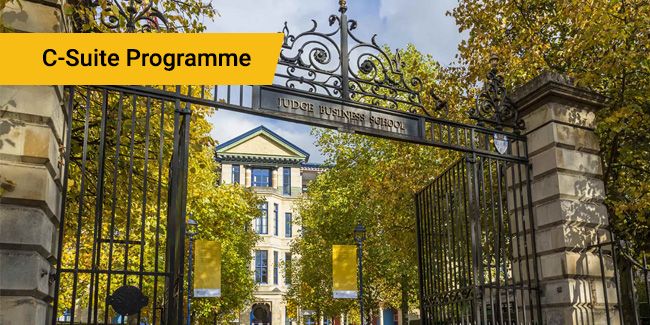What is Human Capital Management and Why is it Important?

- What is Human Capital?
- Importance of Human Capital Management
- Key Elements of Human Capital Management
- How to Manage Human Capital?
- HCM vs. HRM: What is the Difference?
- HCM vs. HRM: What is the Difference?
- Role of Human Capital Management in the Growth of a Company
- Best Practices for Effective Human Capital Management
- Uplift Your Management Skills by Choosing the Right Course
Technology has a significant impact on the professional world, as it is changing traditional business strategies, creating new job opportunities, and eliminating some job roles. The workforce is becoming more diverse. It is therefore apparent that organizations that embrace diversity and inclusion will have a competitive advantage. As a result, Human Capital Management (HCM) is rapidly evolving to keep up with these changes. According to the Corporate Finance Institute, a company with poor HCM standards or practices is likely to struggle to attract and retain talent, affecting its competitiveness and bottom line. This is why understanding the concept of HCM is important for businesses.
This blog will discuss the concept of human capital management, its importance, key elements, and its role in making the whole management process efficient.
What is Human Capital?
Simply put, human capital refers to an organization’s knowledge, skills, and abilities that contribute to its overall productivity and competitiveness. It is an important resource for businesses because it allows them to innovate, adapt to changing market conditions, and compete effectively. Organizations can thus improve their human capital by investing in their employees’ development.
 What is Human Capital Management?
What is Human Capital Management?
Human capital management is a strategic approach that aims to maximize the value of an organization’s human capital. The main goal is to foster professional growth and development by creating a positive work environment that attracts and retains talented employees. To accomplish this objective, HCM can leverage technology and data analytics to assist organizations in making informed workforce decisions.
It also emphasizes the importance of collaboration between HR and other departments, such as finance and operations. This is to ensure that the organization’s human capital strategy is in line with its overall business goals.
Importance of Human Capital Management
Human capital management is critical for any company’s success because it involves managing and developing the workforce to achieve its business goals. These key points further emphasize the significance of HCM:
- It reduces recruitment and training costs by assisting in the attraction and retention of top talent
- HCM also increases employee satisfaction and engagement, which results in higher productivity and better business outcomes
- Makes it easier to identify and develop high-potential employees
- It leads to a better alignment of workforce capabilities with business goals
- HCM also encourages the implementation of equitable compensation and benefit programs
- There is effective tracking of key workforce metrics such as turnover, retention, and training effectiveness
- Increases adherence to labor laws and regulations
- Promotes the creation of a positive organizational culture
ALSO READ: Is Human Resources a Good Career and Why?
Key Elements of Human Capital Management
It is important to recognize that the underlying elements of HCM are interconnected. Therefore, they must be integrated into a comprehensive HCM strategy that aligns with the organization’s business goals and values.
Recruitment and Selection
Attracting and selecting the best candidates for open positions is possible through effective recruitment and selection processes.
Training and Development
Providing employees with ongoing learning and development opportunities to enhance their skills, knowledge, and performance.
Performance Management
Setting clear performance goals, providing regular feedback, and evaluating employee performance, which can help enhance productivity and job satisfaction.
Compensation and Benefits
Designing and implementing compensation and benefits programs that are competitive, equitable, and aligned with organizational objectives.
Employee Engagement
Creating a positive work environment that promotes employee engagement, job satisfaction, and well-being.
How to Manage Human Capital?
Managing human capital involves a strategic and comprehensive approach to optimizing an organization’s workforce. It is necessary to establish clear business objectives and align them with the human capital strategy of an organization.
To do so, an analysis of the current and future workforce needs of the organization should be done by identifying skill gaps. Furthermore, this should be followed by developing a plan to attract, retain, and cultivate the necessary talent. Developing an effective recruitment and selection process can then attract and select the best candidates for open positions. Businesses can also utilize technology and data analytics to automate HR processes, leading to improvement in decision-making.
HCM vs. HRM: What is the Difference?
Terms like Human Resource Management (HRM), while researching human capital management, are often confusing for many. Because there is some overlap between these terms, some organizations may use them interchangeably. Consider the following differences to get a better understanding:
HCM vs. HRM: What is the Difference?
Terms like Human Resource Management (HRM), while researching human capital management, are often confusing for many. Because there is some overlap between these terms, some organizations may use them interchangeably. Consider the following differences to get a better understanding:
| Human Capital Management (HCM) | Human Resource Management (HRM) |
| HCM is a more strategic and forward-thinking approach to managing employees. | HRM is more focused on the administrative tasks related to managing employees. |
| Takes a holistic and integrated approach to managing talent, incorporating various HR functions. | Addresses the day-to-day activities, such as payroll, benefits, and compliance. |
| Emphasizes the development and utilization of employee skills and knowledge to drive business performance. | Emphasizes compliance with labor laws and regulations. |
| Puts a premium on data analytics and technology to make informed decisions. | Puts a premium on maintaining personnel records and ensuring the organization is compliant with applicable laws. |
| Views employees as an investment in the organization’s future success. | Views employees as a cost to the organization. |
ALSO READ: Human Resources Management: Understanding its Scope & Fundamentals
Role of Human Capital Management in the Growth of a Company
HCM not only helps a company optimize its human capital but also enhances performance. Moreover, it helps achieve sustainable growth by ensuring that the right people are in the right roles.
How HCM Leads to Growth
- Helps a company attract and retain top talent by offering competitive compensation and benefits
- Supports employees to develop their skills and knowledge, thus leading to increased productivity and better quality of work
- Creates a work environment that fosters employee engagement
- Improves organizational performance by setting clear performance goals and providing regular feedback
- Identifies employees for leadership roles, ensuring a smooth transition of critical positions within the organization
- Promotes a diverse and inclusive workplace culture
Best Practices for Effective Human Capital Management

Here are some effective human capital management practices that will help organizations in meeting the desired goals (within a timeframe).
Create a Clear HCM Strategy
Create a clear HCM strategy that is in line with the goals and objectives of the organization. Determine the critical roles and skills needed to achieve business objectives.
Utilize Data Analytics
Track and analyze HR metrics such as turnover rate, employee engagement, and workforce diversity using data analytics. Use the information to make informed decisions using data insights.
Encourage a Positive Work Culture
Create a positive work environment that prioritizes employee well-being, collaboration, and innovation. Also ensure you promote open communication, feedback, and lifelong learning.
Create Training and Development Opportunities
Provide training and development opportunities that are relevant to employee interests as well as organizational needs. Also, encourage the professional development of employees and provide opportunities for advancement.
Use Competency-Based Hiring
Use competency-based recruitment methods that focus on job-specific skills and knowledge. Assess candidates using assessments, simulations, and structured interviews.
Leverage HR Technology
Use HR technology to automate HR processes, improve decision-making, and enhance employee experience. Furthermore, use technology to manage recruitment, onboarding, performance, compensation, and other HR functions.
Uplift Your Management Skills by Choosing the Right Course
Human capital management has a lot more to do with how companies treat their employees. There is a wide range to cover, from increasing employee productivity to managing employee data to promoting business growth. As a result, businesses are concentrating their efforts on hiring the best human resource managers to achieve greater success. As these figures suggest, human resource managers are expected to see a 7% increase in employment between 2021 and 2031.
Given the importance of this career shortly, keeping up with the latest trends can help both new and experienced HR managers stay ahead of the competition. With Emeritus’ online HR courses, one can aim to transform HR careers by combining innovation, technology, and high-quality education.
Write to us at content@emeritus.org
















